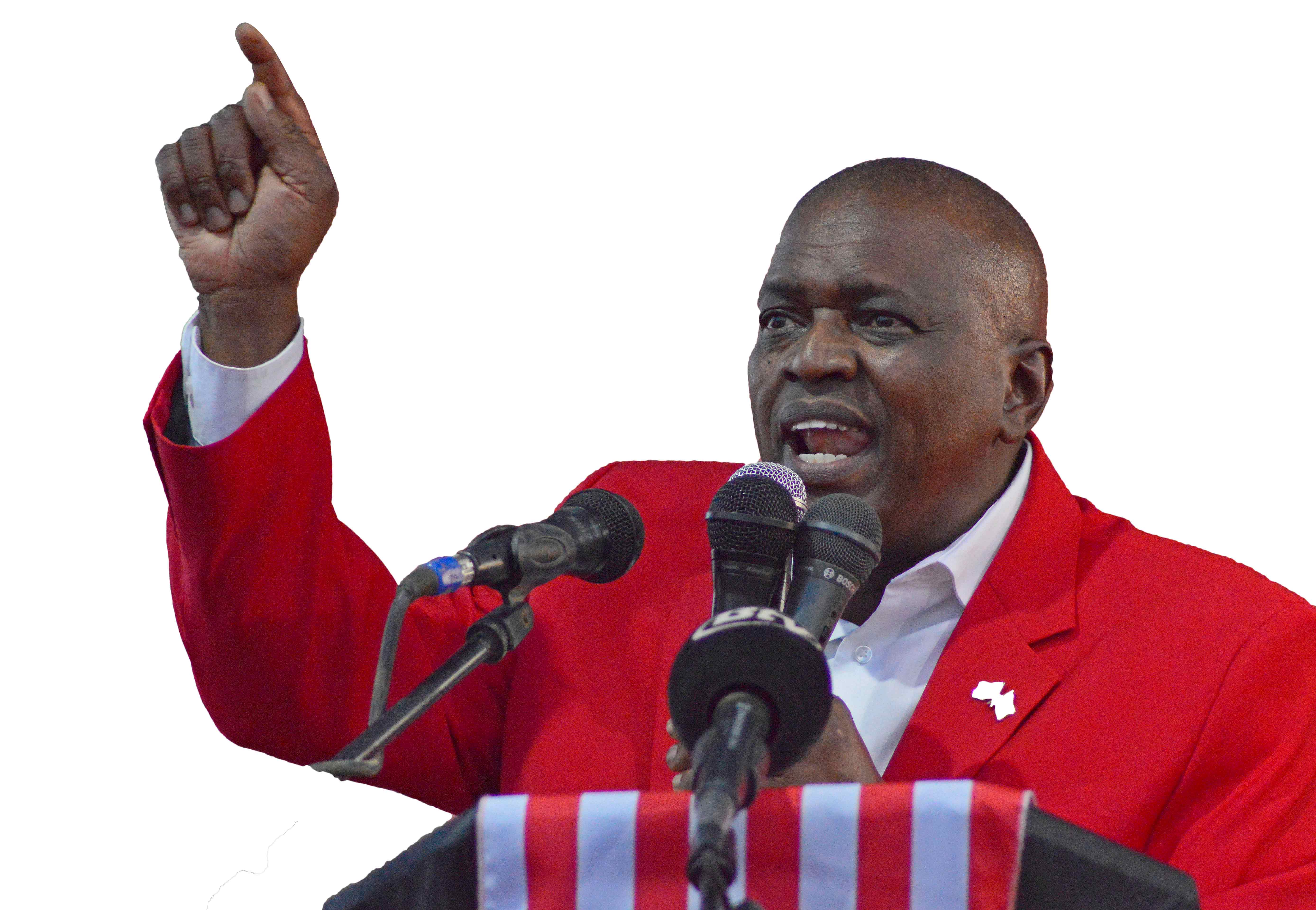President Masisi will have a tight rope to walk between either staunchly defending or explaining away an avalanche of charges of corruption on all sides, including from newfangled BPF and its unlikely bedfellow in combative Duma Boko of the UDC. This preview of how incumbency can be an encumbrance for the likes of Domkrag and insignificance indubitably a blessing for the likes of RAP by TEFO PHEAGE
The president Mokgweetsi Masisi and his main rival Duma Boko have vowed to bury each other alive at their much-awaited presidential debate this week.
The two men have hyped their match so much that observers worry that the debates could degenerate into just so much showmanship.
Both are eloquent speakers, versatile and aggressive in their approach and have mastered the art of throwing jabs to demean the opponent. However, the urge to impress could rob the voter much needed information regarding what they have to offer.
Masisi has the mammoth task of defending the ruling Botswana Democratic Party’s legacy of corruption or explaining it away while Boko will have to unbundle what some people see as his party’s highly ambitious manifesto. The two leaders will also need to address the Botswana Revenue Services (BURS) factor in the country’s politics which has portrayed Boko as a man with a defective character and Masisi as an abuser of state agencies to harass political opponents.
It is highly anticipated that the debate will be an intensely personal and vicious affair in which the two leaders will manoeuvre to discredit each other as unworthy. Boko’s blasé character has come under criticism lately just as Masisi’s purported disingenuity.
The presidential debate is a shift from the norm where candidates did little personal campaigning, mainly leaving the task of attacking opponents and persuading voters to activists and supporters. But politics has changed to where leaders can be the main subject of focus to discredit the entire party. The connection is that presidents are the captains of the ship and an incapacitated captain means an incapacitated ship.
Masisi, who deputised former president Ian Khama, has distanced himself from Khama and his leadership style saying he, like many, was under duress. Boko has blamed his alleged clumsiness on state agents whom he says have been sent after him by the Masisi administration.
The candidates will battle to show how well they can handle the spotlight and how good they are on their feet. It is evident that the ways in which voters perceive and judge them have significantly changed with time, a development which has given rise to crafting unique brands and cultivating positive public images to appeal to a broader base of voters with a wider array of backgrounds and interests. It is not a secret that the UDC has mastered and embraced this aspect by developing a presidential news team and photography department. The opposition coalition uses diverse and luxurious modes of transport for its leaders.
While many politically conscious citizens yearn for this debate, questions remain unanswered as to their effectiveness on the voter ‘s mindset. Whether this phenomenon is beneficial to the electoral process and whether the modern mode of debate is the most effective method for candidates to compare positions and ideas has yet to be proved. The political sophistication of candidates and the poverty levels of most voters in Botswana and Africa in general have bred a culture of ‘purchasable ballots’ where the electorates are showered with gifts of money, alcohol, blankets, food, and many other voter-friendly strategies.
As the main opposition leader, Boko enters the upcoming debate having hauled government journalists as incompetent in the discharge of their duties, describing them as mediocre. There was an alternative where BOCONGO anchored a presidential debate but Boko opted out of it after Masisi shunned it, saying Masisi was his main competitor.
The drama was reminiscent of the January 2019 Nigerian presidential debate where President Muhammadu Buhari declined to partake, attributing his truancy to his “busy and hectic” schedule. His main challenger, Atiku Abubakar, also abandoned the debate, leaving three insignificant challengers. Abubakar condemned Buhari’s absence as “a slight on all of us and our democracy”, adding that he was going to have to miss it too.
Observers say debates are a great idea because they given smaller parties a chance and space to shine. Indeed, this is how many have come to know of the newly registered Real Alternative Party whose leader, Gaontebale Mokgosi, has proved to be a force to reckon with.
Masisi will have to defend shots which will be fired by the leader of the Botswana Patriotic Front, Biggie Butale, whose party certainly has an axe to grind with Masisi. Another factor to deal with will be the leader of the Alliance for Progressives, Ndaba Gaolathe, who is much steeped in issues and will be expected to offer policy alternatives and how they can be achieved. It would be an injustice if Masisi and Ndaba were not allowed to come clean about their alliance that Masisi has spoken about.
Televised presidential debate is considered a great platform for presidential contenders to present their policies and for the incumbent to defend their record while the opposition advance their alternative policies to the emancipation of the people. Although originating from the Western world, a few African states are embracing them while others are lagging behind. The first televised debate was in 1960 between John Kennedy and Richard Nixon. Infact, the first televised debate occurred four years earlier when Democratic candidate Adlai Stevenson challenged incumbent Republican president Dwight Eisenhower, but those two men did not appear in the debate.

